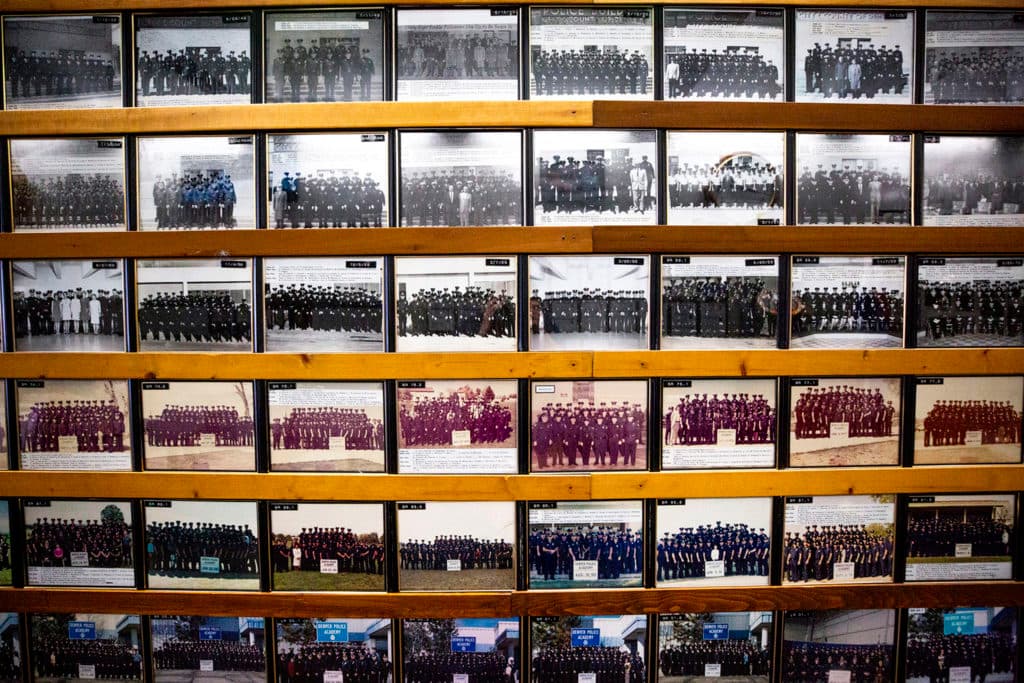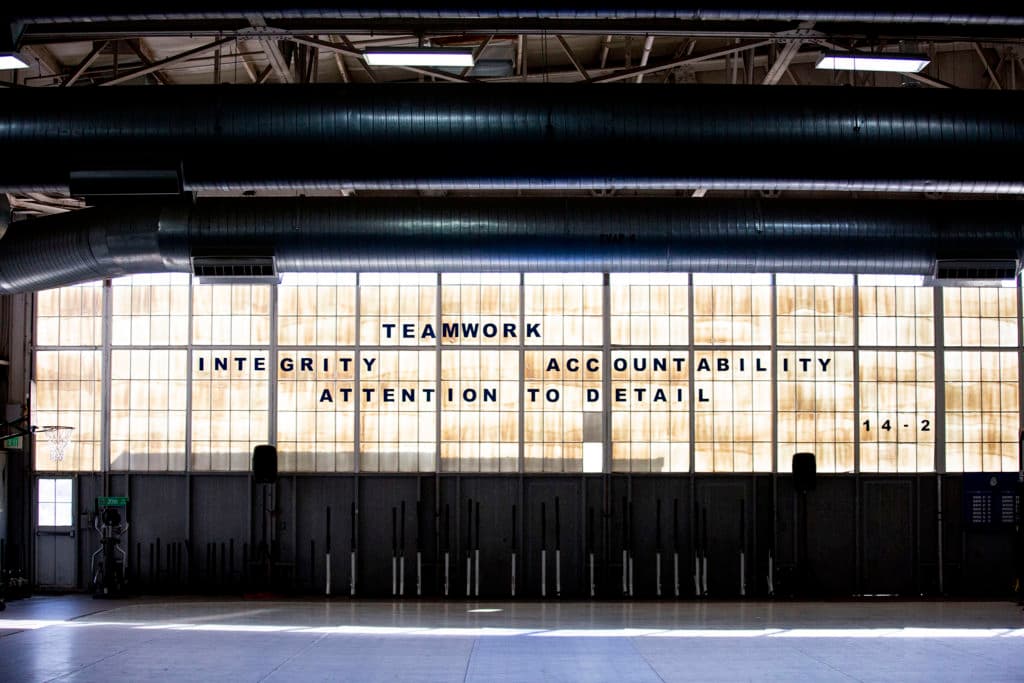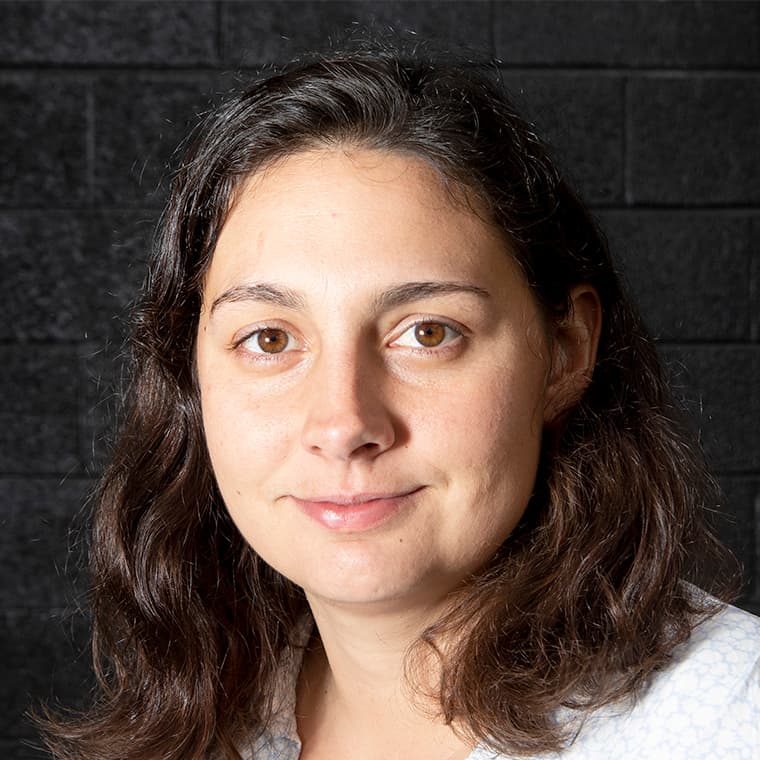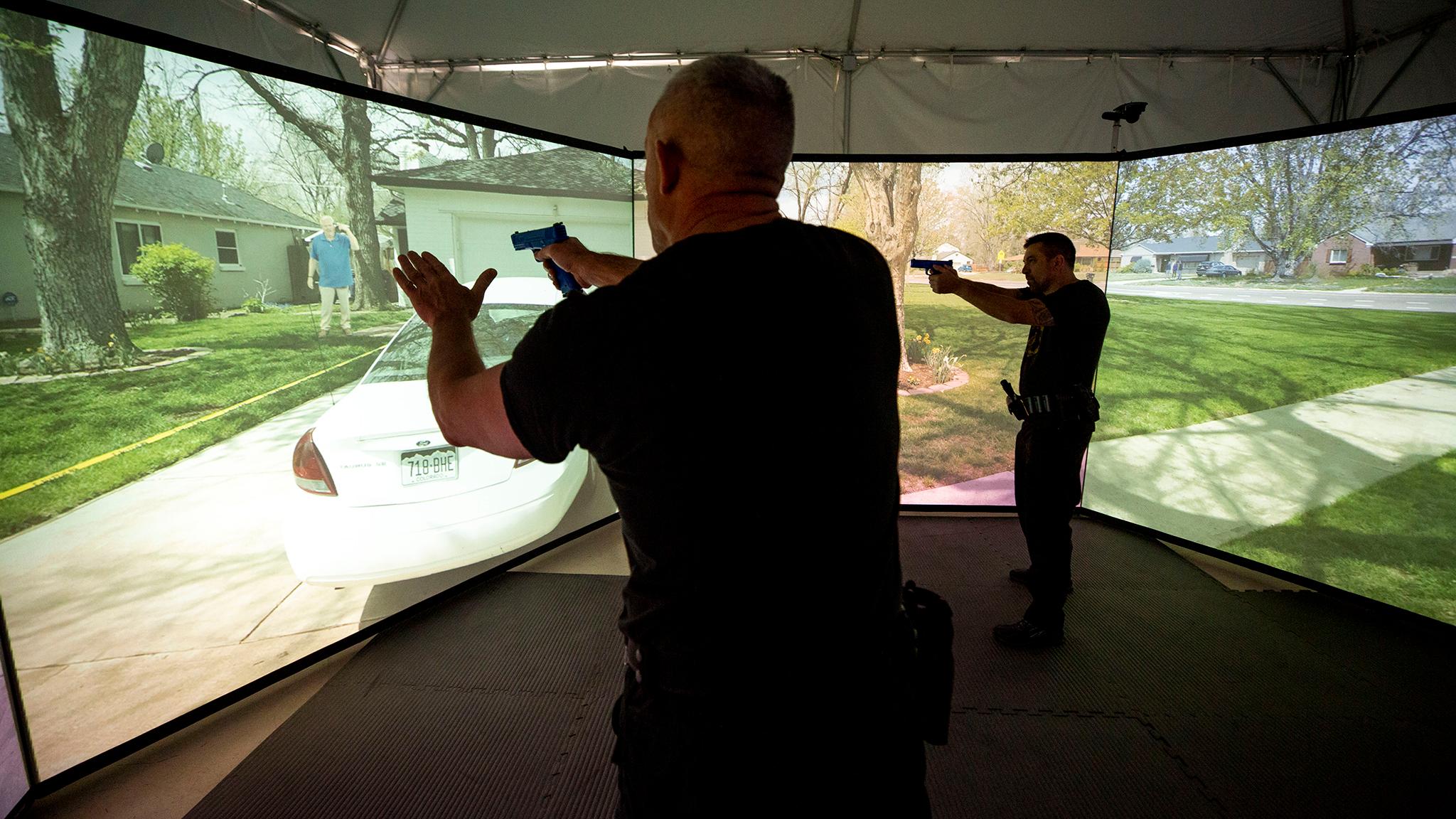On Wednesday night, two recruitment officers from the Austin Police Department in Texas set up tables, chairs and a podium in west Denver's Barnum Recreation Center and waited for potential recruits to start coming in. They waited and waited and one guy finally showed up, taking a seat in the middle of the empty rows of chairs.
It wasn't the turn out that officers hoped for, but it wasn't all that surprising either. All across the country, police departments are struggling to fill their ranks. In a 2018 survey, the Police Executive Research Forum, a think tank based in Washington D.C., found that 63 percent of police departments were getting fewer applications than they had in the past.
The Austin department has 138 vacancies -- which is low compared to many struggling departments -- and they have started looking outside Texas to fill them. Cue Denver.
"We can't hire enough to keep up with Austin's booming population," said Eric Cortez, one of the senior police officers running the recruitment session. "Times are changing. If you're trying to become a police officer, you have your pick of departments."
It seems like a lot are picking Denver. Unlike many other police departments throughout the country, Denver's has not had vacancies in their recruitment classes. The department regularly gets around 1,000 applications each hiring period, a pool that winnows down to 52 cadets in the police academy. (The department also usually gets about 16 recruits from other departments around the country who want to change departments.)

Recruiters say a few things give Denver an edge. A major one seems to be the same thing driving everyone to Denver: it's a very nice place to live.
"I first came here on vacation in 2012. We went hiking and I loved it," said Katie Phillips, 29, a police officer from Cottage Grove, Minnesota, who entered Denver's lateral police academy in September. "Then I heard you guys have 300 days a year of sunshine so I went ahead and scheduled a ride along."
There are also more conventional reasons for the popularity of the Denver department. It's the largest police force in the state, offering the experience and opportunities that come with being a big-city cop. It also has pensions and a competitive starting salary, giving the department a competitive advantage over many in the metro area, recruiters say.
The pension, in particular, has drawn in officers from Aurora, just east of Denver. Over the last few years the department has seen regular defections from officers who join the Denver squad. The trend has become such a problem that in August the city's police chief told the Sentinel that he felt like they were "building a farm team for the Denver Police Department."
Despite their relative success, Denver police recruiters say they still face the same challenges as other departments across the country. High employment rates have shrunk the number of job hunters in general, while a negative perception of the police nationwide -- driven by publicized shootings and misconduct -- has limited the number of people who want to be officers.

Police recruitment technician Anthony Norman says he has had to adapt to the new reality. Instead of just putting out a job posting, he tries to reach out to every applicant and address their questions personally.
The department has also moved away from stereotypical portrayals of police officers as being aggressive and dominating.
"The days of recruitment videos of people rappelling off buildings are gone," Norman said.
The new recruitment video features police officers talking about what it means to be helping their communities.
"When I talk about principles, that's what fires people up," he said.
The department has also made moves internally to combat the negative perceptions of police and its effects on officers. The department added more implicit bias training this year, along with a three-week class that is required for officers involved in a shooting. The department has counselors, a chaplain and is one of a few in the country with physical therapists on staff.
"I honestly could not find a single officer that had anything bad to say," Phillips said. "So I just sort of dropped everything and came here."
Even recruits that don't choose Denver acknowledge the department is enticing. At the Austin Police recruitment meeting Collin Hocker, a local parole officer, was the one interested person at the meeting. He said it wasn't that Denver was driving him away, he just wasn't sure he could get the job.
"I love Denver," he said, "But that department is very competitive. They get a lot of applicants."













